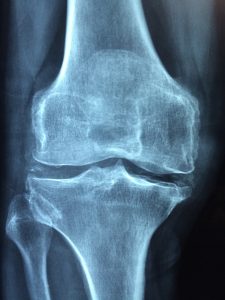
Arthritis is a common condition that affects millions of people worldwide. It is a chronic disorder that causes pain, stiffness, and swelling in the joints. While there are many forms of arthritis, the two most common types are osteoarthritis and rheumatoid arthritis.
Osteoarthritis is a degenerative joint condition that affects the cartilage in your joints. This type of arthritis is caused by wear and tear on the joint over time, although it can also be caused by obesity, trauma, or genetics. Symptoms of osteoarthritis typically include pain, stiffness, and swelling in the joints.
Rheumatoid arthritis is an autoimmune disease that causes inflammation in the joints. This type of arthritis is caused by the body’s immune system attacking the joint tissue, leading to swelling, pain, and stiffness. Unlike osteoarthritis, rheumatoid arthritis usually affects multiple joints, and it is more common in women than men.
The exact cause of arthritis is still unknown, but there are several risk factors that can increase your chances of developing the condition. These include age, genetics, obesity, and certain lifestyle factors such as smoking. Although there is no cure for arthritis, there are treatments available to help manage the symptoms. These include medications, physical therapy, lifestyle changes, and surgery. In some cases, doctors may recommend a combination of treatments to help manage the condition.
In addition to traditional treatments, there are also several natural remedies that can help relieve arthritis symptoms. These include exercise, yoga, acupuncture, massage, and dietary changes. While arthritis can be a painful and debilitating condition, there are ways to manage it and live a healthy, active life. By understanding your condition and working with your doctor, you can develop an effective treatment plan that will help you manage your symptoms and live a comfortable life.
Diagnosis of Arthritis
The diagnosis of arthritis begins with a physical examination by a doctor. During the examination, the doctor will look for signs of inflammation and pain, such as swelling and tenderness. The doctor will also ask questions about the patient’s medical history, including any prior joint injuries or illnesses. The doctor may also order tests to help diagnose the type of arthritis.
Blood tests can detect signs of inflammation, as well as specific antibodies that are associated with particular types of arthritis. X-rays can help the doctor identify any changes in the joint structure, such as bone spurs or cartilage damage.
Finally, a joint fluid analysis may be performed to look for signs of infection or crystals. Once the type of arthritis has been identified, the doctor will create a treatment plan. This plan will typically involve lifestyle modifications, such as exercising regularly and maintaining a healthy weight. In some cases, the doctor may also prescribe medications to reduce inflammation and relieve pain. Physical therapy and other supportive treatments may also be recommended. If you think you may have arthritis, it is important to speak to your doctor to get an accurate diagnosis and find the best treatment plan for you.

Scientific Research on Arthritis
The exact cause of arthritis is unknown, but scientific research has shed light on the condition over the years. One of the main areas of scientific research into arthritis has focused on the role of inflammation. Inflammation is a response by the body to protect itself from injury or infection. In the case of arthritis, inflammation occurs in the joints, which can lead to pain, stiffness, and swelling. Research has shown that inflammation plays a role in the development of both rheumatoid arthritis and osteoarthritis.
Another area of scientific research into arthritis has focused on the role of genetics. While the exact cause of arthritis is still unknown, research has suggested that some forms of arthritis may have a genetic component. Scientists have identified a number of genes that are associated with the development of certain forms of arthritis, such as rheumatoid arthritis.
In addition to these two areas of research, scientists have also studied the role of diet in the development of arthritis. Studies have shown that some types of foods, such as red meat and processed foods, can increase the risk of developing arthritis. On the other hand, diets that are rich in fruits, vegetables, and fish may be protective against the development of arthritis.
Finally, scientific research has looked at the role of lifestyle factors in the development of arthritis. Studies have suggested that physical activity, such as regular exercise, can help to reduce the risk of developing arthritis. In addition, research has suggested that maintaining a healthy weight and avoiding smoking may also reduce the risk of developing arthritis.
Overall, scientific research has provided valuable insights into the causes and treatments of arthritis. While the exact cause of arthritis is still unknown, research has shown that inflammation, genetics, diet, and lifestyle factors all play a role in the development of the condition. By understanding these factors, doctors and researchers are better able to develop treatments and interventions to help those living with arthritis.
Below is a good video on arthritis which you may want to check out.